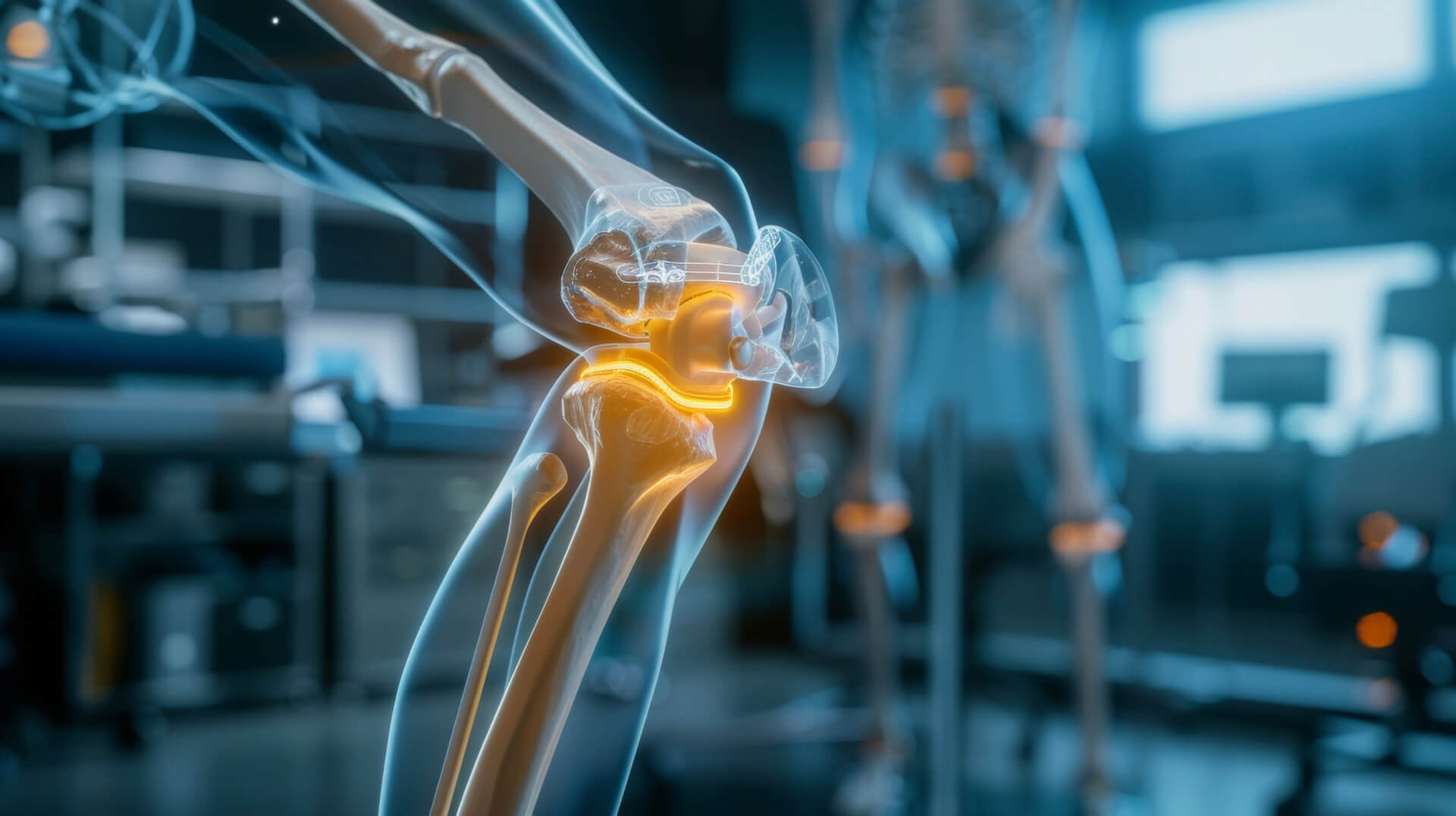* Only visible on admin mode.
Data Layer Value
Value
DataLayer - GTM_Page_Type
DataLayer - GTM_page_category
Front Row MD ID

Content
Author
Reviewed by
Date
Category
Tags
What Is Collagen: Types, Benefits, and Uses
Immunity, Lifestyle, Longevity


August 1, 2024
Glenn R. Moore
Collagen is a protein that structures our skin, muscles, bones, and connective tissues.
It makes up about 30% of the body’s protein and supports skin elasticity, joint health, and overall well-being.
This article explains collagen, its types, benefits, and how to boost it.
Quick Facts
Quick Facts
- There are 28 types of collagen, Type I, II, III, IV, and V being the most common. Each plays a different role in different tissues and organs, such as skin, cartilage, blood vessels, and hair.
- You can boost collagen levels through dietary sources like chicken skin, fish skin, and bone broth or supplements containing hydrolyzed collagen peptides, which have been shown to improve skin health, joint flexibility, and wound healing.
What Is Collagen
What Is Collagen

Collagen is about 30% of our body’s total protein and is the main component of skin, muscles, bones, tendons, ligaments, and other connective tissue.
As a structural protein, it holds cells together, provides strength and support, and gives skin its elasticity.
It’s essential for healthy bones, skin, blood vessels, and organs.
Without collagen, the fundamental structure of our connective tissue and organs' function would be missing.
The importance of collagen goes beyond just structure, it's key to our overall well-being.
However, certain conditions, like osteogenesis imperfecta or "brittle bone disease" and genetic disorders like Ehlers–Danlos syndrome, can affect collagen production and function and cause various health issues.
Nutritional deficiencies can also affect collagen production.
Collagen Molecular Structure
Collagen Molecular Structure

Collagen's molecular structure consists of three polypeptide chains forming a triple helix structure, which gives it unmatched strength and flexibility.
This triple helix structure is stabilized by hydrogen bonds, which add more strength and stability to the collagen fibers.
The main amino acids that make up collagen are proline, glycine, and hydroxyproline, each playing a vital role in the protein's structure.
The arrangement of these amino acids and hydrogen bonds makes collagen the most abundant protein in the body and one of its key structural components.
Understanding this structure helps us see how collagen supplements, especially those with collagen peptides, can support and boost collagen production in the body.
Types of Collagen
Types of Collagen
- Type I: It’s the most abundant type, making up 90% of the human body’s collagen. It’s for hair, skin, bones, tendons and ligaments. It provides structure.
- Type II: This is the main component of elastic cartilage in the human body. It gives cartilage its strength and elasticity, which supports joint function.
- Type III: It’s found in many parts of the body and is the second most abundant collagen in soft tissues. Type III collagen plays a role in blood clotting and wound healing, and is involved in the formation of granulation tissue. It’s mainly found in arteries, muscles, and organs.
- Type IV: It’s found primarily in the skin, in the basement membrane of cells providing functional and structural support for various cell types. It also helps regulate cell adhesion.
- Type V: Type V Collagen is a fibrillar collagen. It contributes to the bone matrix and is found in the cornea, hair, cell surfaces, and the placenta. It’s also found in some layers of the skin.
Each type is for different aspects of bodily function, showing how versatile this protein is.
How Collagen is Made
How Collagen is Made
Collagen production in the body is a complex process that requires many nutrients.
Because collagen is a protein, it’s made from amino acids found in the body.
Your body needs a variety of nutrients to produce collagen.
For example, Vitamin C is crucial for the hydroxylation of proline and lysine – the amino acids that make collagen’s structure and strength.
Without enough vitamin C, collagen synthesis would be incomplete, and the collagen fibers would be weak.
Zinc, copper, and manganese also play a big role in collagen production.
Zinc helps the enzyme collagenase break down old tissue to make way for new collagen.
Copper works with the enzyme lysyl oxidase to cross-link collagen fibers so they are strong and stable.
Manganese activates proline, an amino acid essential for collagen synthesis.
These nutrients support collagen production and the integrity of connective tissue.
Benefits of Collagen

Collagen's many benefits are why it’s a staple in supplements and skincare products.
Skin Health
Skin Health
Collagen supplements, especially those with hydrolyzed collagen, have been shown to improve skin health.
Randomized trials have shown that these supplements can improve skin moisture and elasticity and reduce wrinkles.
Marine collagen comes from fish and is good for skin health because of its high bioavailability.
Peptides like prolyl hydroxyproline in collagen products can reduce wrinkles.
Vitamin A can protect collagen from breakdown and promote the production of new collagen protein.
Joint and Bone Health
Joint and Bone Health
Collagen peptides in supplements are good not only for the skin but also for joint and bone health.
These peptides can form collagen that gets deposited in cartilage, bone muscles and tendons.
This deposition supports joint flexibility and bone health. Collagen is essential for mobility as we age.
A study on collagen supplements and osteoarthritis symptoms showed good results: joint pain was reduced by 43%, and joint mobility improved by 39%.
Glycine, proline, and hydroxyproline, collagen's 3 main amino acids, are responsible for its anti-aging properties and joint flexibility.
As we age, collagen levels decrease. Maintaining healthy levels through dietary supplements can prevent weaker bones and decreased muscle function.
The amino acid glycine, one of the main components, plays a big role in these benefits.
Wound Healing
Wound Healing
The wound-healing process relies heavily on collagen.
Collagen is an essential component in tissue regeneration.
It provides structural support to tissues and helps heal and regenerate new tissue.
Collagen wound dressings can control bleeding, reduce inflammation, and promote new tissue growth, making them vital components in wound treatment.
Sources of Collagen
Sources of Collagen

From dietary inclusions to supplements, there are many ways to increase collagen.
Chicken, especially its bone and cartilage, is a good source of dietary collagen, which is good for skin and joint health.
Fish parts like the head, scales, and eyeballs have more collagen than the meat, so they’re a great addition to a collagen-boosting diet.
Bone broth is also rich in collagen. You can drink it as a soup or use it as a base for other dishes, so it’s an easy and tasty way to increase collagen intake.
These foods are bioavailable and can easily be added to meals to support collagen production naturally.
Collagen is also available in powder, capsules, and liquid form for those who prefer supplements, or for those who can't get enough from their diet.
These supplements often have collagen peptides from fish, cattle, eggs, and chicken.
They are often combined with other ingredients, such as vitamins, minerals, antioxidants, coenzyme Q10, hyaluronic acid, and chondroitin sulfate, to support collagen production and health benefits.
These oral collagen supplements often contain hydrolyzed collagen, broken down into smaller peptides for easier absorption.
Peptides from collagen supplements break down into building blocks that form proteins like keratin, which supports skin, hair, and nail health.
Alternatives to animal based supplements are also available which provide the building blocks of collagen.
Factors that Affect Collagen Levels
Factors that Affect Collagen Levels

Many factors, such as aging, lifestyle, and environmental factors, can affect collagen naturally in the body.
Adopting a healthy lifestyle and nutrient-dense diet can protect against collagen loss and overall health.
Aging
Aging
Aging is one of the biggest factors affecting collagen levels.
Around 30, the body starts to lose collagen, and cell structures weaken, resulting in thinner skin and stiff joints.
This decline in collagen production becomes more visible over time and contributes to aging.
While this is natural, having a healthy lifestyle can help minimize the effects of collagen loss and overall health.
Lifestyle Habits
Lifestyle Habits
Some lifestyle habits can greatly affect collagen production and aging.
Smoking, for example, can affect the body’s natural collagen production and result in early skin wrinkling and sagging.
Excessive alcohol consumption causes dehydration and can depleat vitamin levels, particularly Vitamin A, which can further lower collagen levels.
Avoiding smoking and excessive alcohol consumption and having a nutrient-dense diet can help support healthy collagen levels and overall well-being.
How to Increase Collagen Production
How to Increase Collagen Production
A combination of dietary changes and lifestyle adjustments can boost collagen production.
Including high-quality protein, vitamin D, calcium, and zinc in your diet can also support collagen synthesis and bone health.
Foods high in vitamin C like berries and citrus fruits can increase collagen production.
Garlic, rich in sulfur, helps synthesize and prevent collagen breakdown.
Avoiding sugar and refined carbohydrates can prevent inflammation that inhibits collagen synthesis.
Side Effects of Collagen Supplements
Side Effects of Collagen Supplements
Though generally safe, collagen supplements can cause gastrointestinal discomfort, allergic reactions, or interactions with certain medications.
Some may experience mild diarrhea, bloating in the abdomen, or a rash after taking them.
Please check for potential allergens in collagen supplements as they may be sourced from:
- fish
- chicken
- cattle
- eggshells
Some supplements may also contain herbal extracts that can interact with medications or are not safe for pregnant or nursing individuals.
High doses of certain vitamins in collagen supplements like biotin can interfere with lab tests for heart or thyroid function.
Collagen Research
Collagen Research
Research on collagen supplements is still limited and has some limitations.
Some of these limitations are that small sample sizes have been used in many of the studies.
Sometimes, supplement companies fund the research which can introduce bias.
And, self-reporting measures can be subjective and possibly lead to skewed results.
Despite these limitations, some studies show that collagen supplements can improve skin hydration and elasticity, joint health, and bone mineral density.
More research and larger studies are needed to confirm these benefits and ensure long-term safety and efficacy of collagen supplements, as well as standardize measurements and measure objective improvement from collagen supplementation.
Conclusion
Conclusion
In summary, collagen is a protein that plays a big role in the structure and health of our body’s tissues.
Its benefits range from skin hydration and elasticity to joint flexibility and bone health.
Knowing the types of collagen, how it’s produced, and the factors that affect its levels can help you make informed decisions about incorporating collagen into your diet and lifestyle.
By eating collagen-rich foods or taking collagen supplements and living a healthy lifestyle, you can increase your collagen production and enjoy its many benefits.
Frequently Asked Questions
What are the types of collagen, and where are they found?
How do you naturally increase collagen production?
Are there side effects of collagen supplements?
What are the benefits of collagen for the skin?
What can decrease collagen levels in the body?


-
Latest Posts
-
-
The Power of Fiber: Why Your Body Loves It and How to Get More
-
Know Your Oats: A Comprehensive Guide
-
5 Steps to a Healthier You
-
Advancing Health with GLP-1: Innovations, Applications, and Future Directions
-
Understanding and Managing Urinary Tract Infections (UTIs): Prevention, Treatment, and Complications
-
-
Contacts
Contacts
967 E. Parkcenter Blvd #345
Boise, ID 83706
7 A.M. - 3 P.M. MST, Mon - Fri
(833) 332-8655
support@clinicaleffects.com
THE STATEMENTS MADE ON OUR WEBSITES HAVE NOT BEEN EVALUATED BY THE FDA (U.S. FOOD & DRUG ADMINISTRATION). OUR PRODUCTS ARE NOT INTENDED TO DIAGNOSE, CURE OR PREVENT ANY DISEASE. CLINICAL EFFECTS IS NOT AFFILIATED WITH ANY OF THE STUDIES MENTIONED ON THE WEBSITE. THE TESTIMONIALS ON THIS WEBSITE ARE INDIVIDUAL CASES AND DO NOT GUARANTEE THAT YOU WILL GET THE SAME RESULTS.
© All Rights Reserved 2021








